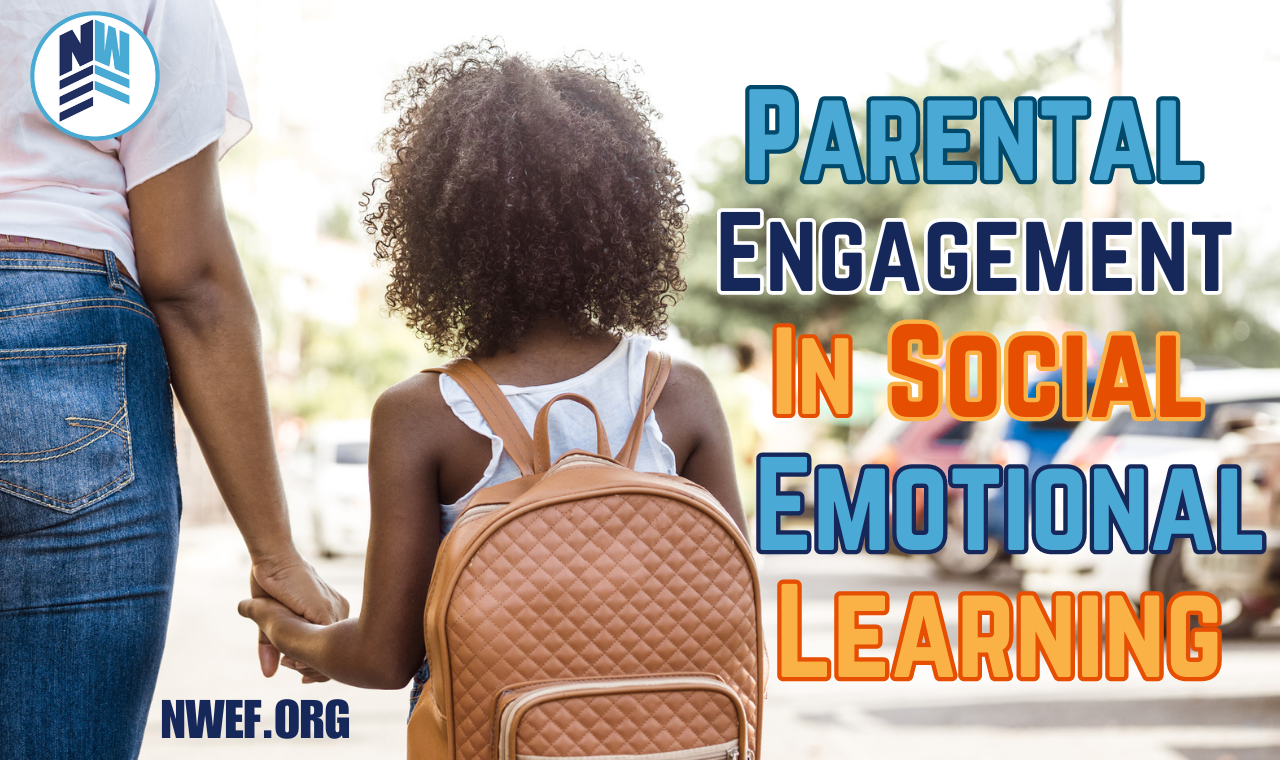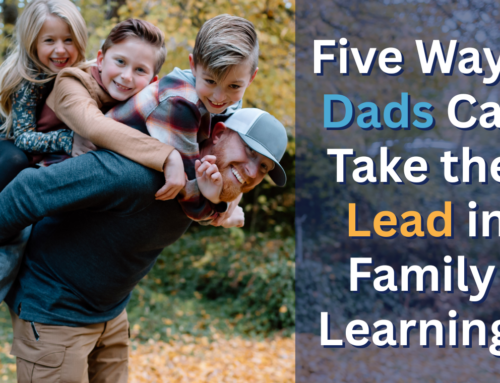
Families play an essential role in fostering their children’s social-emotional learning. Research shows that SEL is more effective when parents and guardians model the same skills and behaviors that students are mastering in the classroom.
SEL, or social emotional learning, is a process aimed at helping students master the art of supporting their own well-being and academic success. SEL teaches children the appropriate way to interact with their inner being and others. It teaches good character, moral values, and self-esteem. SEL in this context is a learning process, not a curriculum in and of itself. SEL curriculum is a controversial and possibly harmful approach to teaching SEL as a concept.
Collaborative for Academic, Social, and Emotional Learning (CASEL) is a leading figure SEL curriculum. They note that when state policies support and dictate effective SEL strategies in every school, “success in the classroom is more likely.” As of 2022, twenty-seven states retain policies implementing SEL for K-12, while all fifty states have done the same for Pre-K.
NWEF recently covered why SEL has come under fire and why many parents are concerned, especially after revisions to some curriculum has led to SEL being rebranded as TSEL (Transformative Social Emotional Learning. As a quick recap: SEL has the great potential to be hijacked by radical agendas, and in some cases, this has already occurred. Social emotional learning is a double-edged sword in today’s academic climate, with essential skills on one side and potentially harmful agendas on the other. Education has never been a neutral ground, and it never will be. Parents must acknowledge this truism and be proactive partners with their child’s educators.
Why Should Parents Get Involved?
Harvard Graduate School of Education explains, “…educators and parents both understand the importance of social-emotional skills — that the ability to manage emotions, to empathize, and to collaborate is key to fulfillment and success, in school and in life.”
Having parents involved in any area of a child’s education is beneficial. Social emotional learning (SEL) is no exception. In fact, SEL is a perfect, even crucial, aspect for parents to involve themselves and come alongside the school in cooperation. Learning proper social and emotional skills begins in the home from infancy, and parents enjoy a unique opportunity to set a solid foundation for their student.
At its core, SEL reflects the values of the student’s environment. Character, moral and ethical values, social cues, and self-worth are all pieces of social emotional learning. Parents should actively influence their child’s social emotional learning to reflect the worldview of their family. How these traits are taught has the potential to shape a child’s life-long existence, so this is actually a very big deal.
As EdWeek put it, “Social-emotional learning shouldn’t stop when the final bell rings. It is critical that we involve parents in social-emotional practices so that students can apply these concepts to life outside the classroom.”
Social-emotional learning gives your child tools to cope with real-life situations. Showing, by example and instruction, how to implement these skills at home reinforces the concepts that the children are taught in class. Shaping your child’s social and emotional character is a crucial part of parenthood, and it always has been. Through SEL, the state and your child’s school have joined in this responsibility, but parents should remain the primary educator in this area.
So, what can you, a parent, do to remain relevant in your child’s SEL education efforts? This article will explore ways to get involved with your child’s social emotional learning!
Know Your State
Every state has SEL integrated into classwork at some level. To understand how this affects their students, parents must know their state policies concerning SEL. CASEL offers an interactive map, allowing parents to discover where their state stands.
CASEL also provides a state scorecard scan to “track the development of competencies (also called standards, benchmarks, or learning goals) and guidance (also called resources and tools) that support social and emotional learning (SEL).” Parents can access this scorecard in PDF form here.
Educate Yourself
To participate in SEL training at home, you must understand what your student learns at school. You can help your student succeed in their social emotional journey by reinforcing SEL concepts in your everyday life together.
“The relationship between child and parent or guardian is essential for building the foundation for future social-emotional health,” the Early Childhood Education Blog tells us. “When parents work to model healthy social-emotional skills, they can promote these key skills and build the trusting and safe relationship necessary with their child that will allow them to learn and explore.”
It’s vitally important for parents to understand the importance of social emotional learning for their child’s development. SEL prepares children for adulthood. When students have the knowledge and skills to tackle real-life problems constructively, they can navigate the pressures of adulthood.
SEL skills also benefit students from an academic point of view. CASEL has compiled data from a large number of studies examining the short-term benefits of SEL for students. Their findings are:
- “27% more students would improve their academic performance
- at the end of the program;
- 57% more would gain in their skills levels;
- 24% more would have improved social behaviors and lower levels of distress;
- 23% more would have improved attitudes; and
- 22% more would show fewer conduct problems.”
When parents educate themselves on SEL, they empower themselves to partner with their kid’s school to produce a well-rounded, confident individual.
Set Goals for Your Child
The best way to see results in any area of life is to set and work toward goals. Social emotional learning is a complex, long-term effort. Goals help break this enormous task into bite-sized pieces and provide structure to your endeavors.
Schools love to see parents participating in SEL and often encourage it! In their admonition to educators, the Harvard School of Education offers teachers and schools advice on how to include parents in their SEL efforts. One of their suggestions includes, “Invite families to generate SEL goals for their children. Ask families to identify what specific skills they would like their children to develop and what kind of characteristics they would like their child to personify.”
Set goals for your kids. Or, an even better idea is to talk to your kids and set goals together!
Involve Your Student
You know your child best. Sit down with your kid. Discuss how they feel about each of the established points of SEL learning (self-awareness, self-management, social awareness, relationship skills, and responsible decision making), where they think their strengths and weaknesses are, and how they can work to improve.
Ask how the school encourages these core attributes, and explore how the school’s approach makes your kid feel. Remind them that you’re their parent and that you are always there for them regardless of anything else. Make sure your child feels comfortable approaching you with struggles, confusion, or questions. Create a warm, loving environment for your child to learn and experience in.
Share suggestions, wisdom, and strategies in your everyday life to maneuver specific situations. Model strong social and emotional skills at home and throughout your day and allow your kid to see first-hand how to deal with real-life issues.
Many parents believe that social and emotional skills should be taught at home and not at school. Traditionally, this process was family-based and reinforced through education. Today, these life skills are taught less at home and more at school. If you have concerns about how your child is being taught SEL or the content that the SEL training includes, asking what policies or procedures are in place to handle content concerns is the best place to start. A teacher or a superintendent should be able to walk you through what steps you should take to investigate your concerns.
Education should reinforce what you’re teaching your children at home. When home and school contradict each other, students can end up confused and frustrated.
Communicate
Another effective way to get involved with your student’s SEL education is to remain communicative with their school and teachers. Cultivate a relationship with the educators in your child’s life. Ask questions, offer support, and, when necessary, humbly address potential problems. When teachers and parents collaborate, students benefit!
Schools are encouraged to offer resources for parents to create a partnership in SEL education between the school and the family, and there are also online resources. Utilize any tools your child’s school offers, and endeavor to work with educators for your child’s success.
Be Proactive
While we’d all like to believe that everything our child learns at school aligns with our own family values and sense of morality, this simply isn’t a logical conclusion.
The schools are an utter mash-up of humanity from all walks of life, backgrounds, cultures, and value systems. While exposing our kids to diversity is crucial and beneficial, it’s just as vital for them to retain their own cultural and familial values. Parents must understand what their child is learning that might go against the grain at home to formulate the appropriate response.
Be proactive in teaching your kid your family values, demonstrate your social awareness, and offer a foundation built on the worldview you want your child to experience. Be sure not to set an example of close-mindedness, but approach each new idea or concept with a willingness to learn without compromising what you know to be true. Proactively demonstrate your own social and emotional skills as an example for your child to model how your values work within society.
Harvard Graduate School of Education offers this tip to parents, “Regularly talk with your children about what others might need and how you could be helping. Think about big and small ways that you can help — whether by taking out the trash for an elderly neighbor or by volunteering at a local food pantry or at your church, mosque, or temple. These acts build empathy, cooperation, and a community-oriented mindset.”
Teach your child how self-confidence and self-awareness can couple with empathy for others and a desire to grow. Today’s world is a confusing place, especially for younger children, and parents must be proactive to protect their children while at the same time cultivating love and understanding for others.
It’s the Parent’s Responsibility
While you may subcontract your child’s education to someone else, either through tax dollars, a tutor, or a private school, the ultimate responsibility for education lies with the parents. Research has proven that parental involvement in education plays a vital part in student success.
Character development, self-esteem, self-awareness, a sense of morality, a good understanding of ethics, social awareness, relationship skills, and all the other “soft” and social skills your child will need starts in the home during the formative years (ages 0-8).
As the parent of your kid, you have the ability and responsibility to know and understand how your child is being educated and to ensure that they are safe physically, mentally, emotionally, and psychologically. Social emotional learning isn’t new, and parental involvement in this process has been primary for millennia. With a few well-formulated strategies and the power of knowledge on your side, you can confidently partner with your child’s educators to help your child become the balanced, well-formed citizen you know they can be!




